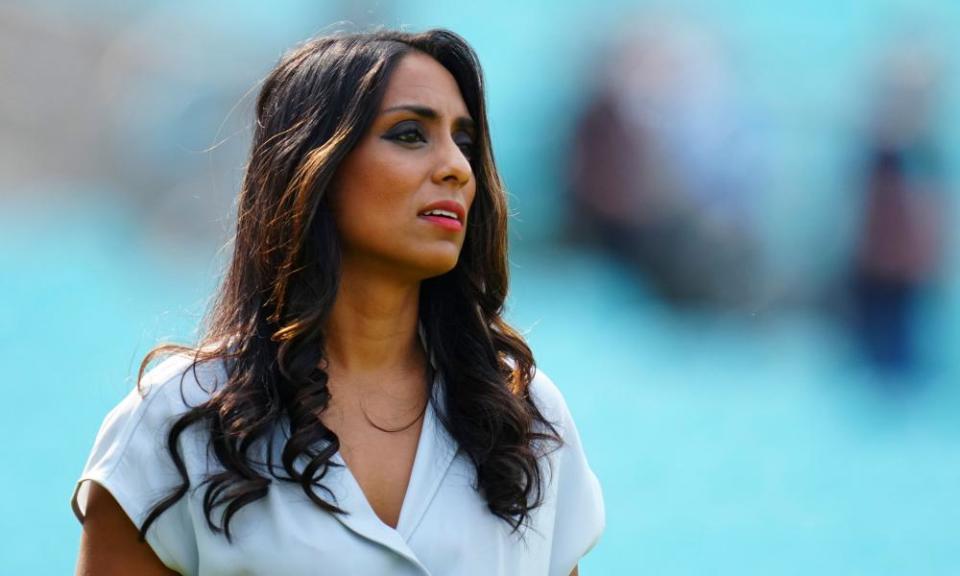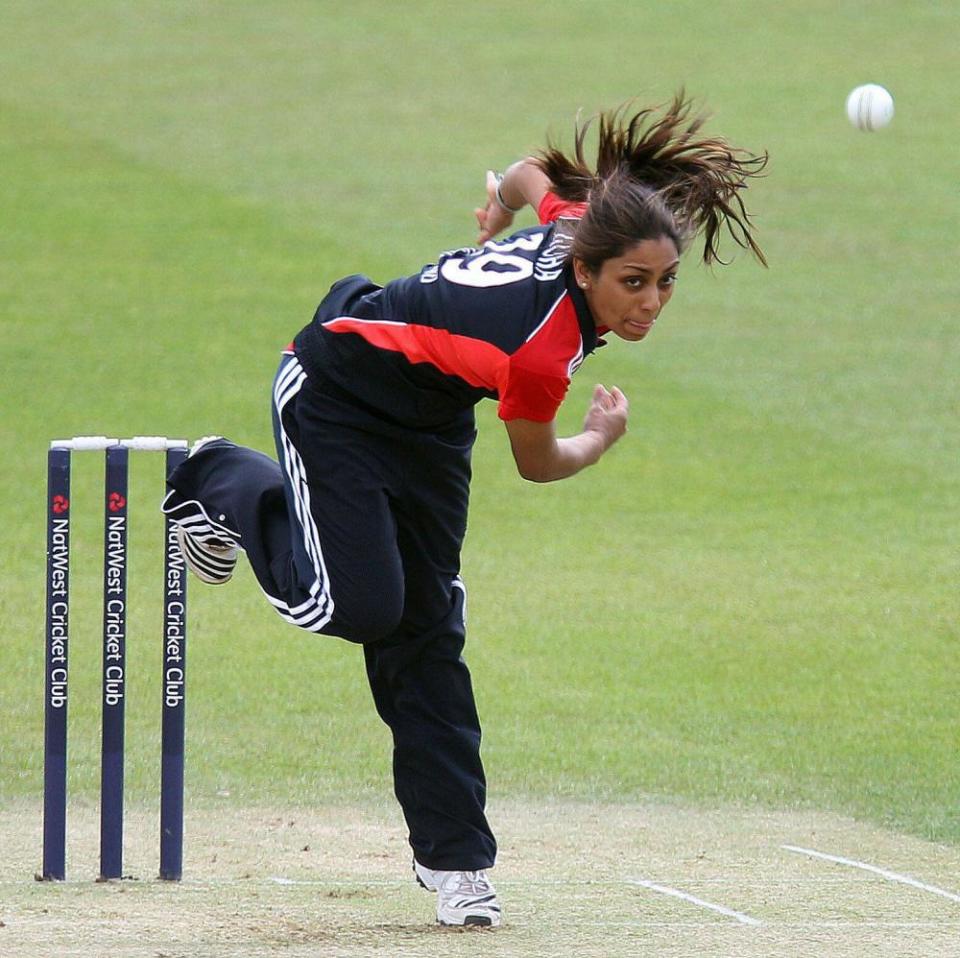
Changing rooms can be lonely places. When Isa Guha started playing cricket she was the only girl in an all-boys team and when she was only a little older, the only girl in an all-women’s one. A lot of the women she played with and against in her 10 years of international cricket had similar stories, so do a lot of the women she watches and talks about now, a decade later, in her second career as a presenter and commentator.
“Being the only girl in a team, that’s still quite common,” Guha says. “It probably helped my cricket, because I was spending so much time out of my comfort zone, but it still came with the same feelings of isolation.”
Related: Dominant Australia hailed as best ever after sixth Women’s T20 World Cup triumph
Last year, Guha launched a non-profit mentoring organisation, Take Her Lead, working in women’s cricket. Before the launch, they commissioned a survey of 300 young female cricketers about their experiences. “I know we all feel we have a pretty good idea of what’s going on, but there’s nothing like speaking to people who are coming into the game,” Guha says, “and we were shocked that experiences they were talking about were the same experiences our mentors had had when they were growing up. It made me realise the sport hasn’t moved forward as much as we think it has.”
They told stories about being uncomfortable wearing whites, because of their periods, but feeling unable to talk to any of their teammates and coaches about it. They spoke, too, about the sense they needed to be twice as good as the boys they were playing with, to prove they deserved their place, and the sense of isolation, of having no one to talk to about it.
“There were times when I was 12 or 13 when I wanted to quit the game because I felt isolated,” Guha says. In her case, that loneliness wasn’t exacerbated because there were so few British Asian girls playing the game but she can understand how that may be the case for others.
Guha was the first woman with a British South Asian background to play for England and 12 years after her retirement she is still one of only two – the other being Sonia Odedra – to have played for England.

“The figure we keep hearing is 30% of the playing population in England is from a South Asian background, but you have to separate men’s and women’s cricket,” she says. The research done by Take Her Lead is designed to help fix that. “The figure is much smaller on the women’s side,” she says, and the upshot is that “five players from minority backgrounds have played for England women, so you have to ask ‘Why?’”
Guha has been doing a lot of thinking about that. “In the last few years I’ve been doing a lot of reflecting on why I was able to succeed when there was such a lack of representation at the England level,” she says. “Asking myself why I was able to get through the system and I realised it was because of the support I had, especially from my mother. It wasn’t just her, but she gave me the confidence and the belief to be able to do what I did.”
Take Her Lead is, in part, a tribute to her mother, Roma, who died in 2019, and an effort to provide the same sort of support she gave her children to girls who don’t have it in their own lives already. Their first initiative, Got Your Back, launched on Tuesday.
“I heard those young girls’ experiences and thought: ‘Yeah, I definitely felt that when I was younger, but was I supported to come through it?’ Well, maybe those girls aren’t getting that and that’s why we’re losing them from the game. Got Your Back is meant to raise awareness and understanding about what everyone in the game can do to be better at encouraging women and girls to get involved.”
Beyond that, Take Her Lead are planning bigger projects, in collaboration with Ebony Rainford-Brent’s ACE programme, The Lord’s Taverners and the MCC Foundation.
These are strange times for women’s cricket. The game is changing fast. Guha has just been in South Africa, for the women’s T20 World Cup. “Last time I was here, when we were on tour in 2011, we would have a hundred people turning up to the ground to watch.” Twelve years later, almost 13,000 came to watch the final. “To see a packed house, and all the support for the team from the local community, filled me with so much pride. It was very emotional.”
The first Women’s Premier League begins on Saturday. It wasn’t so long ago that England women players had to pay for their own kit – now the best of them are picking up six-figure contracts in the franchise leagues. The pace of change creates its own stresses, as boards try to navigate the new landscape of the game and players reckon with the life-changing sums of money on offer, along with the increased scrutiny that comes with all the exposure.
“We absolutely see a need to manage that transition,” says Guha. The game is being stretched, and she adds: “We’re really conscious there doesn’t become too much of a gap to entry level.”
At the same time, the report conducted by the Independent Commission into Equity in Cricket is looming over the English game. Guha believes it is going to “uncover a lot of hard truths”, but she also sees it as an opportunity to make the game better, and bigger. “You can only move forwards if you know where you’re coming from.”
• This article was amended on 3 March 2023. An earlier version said that Isa Guha was the only woman with a British South Asian background to have played for England; in fact Sonia Odedra has also done this since Guha retired.
Article courtesy of
Source link